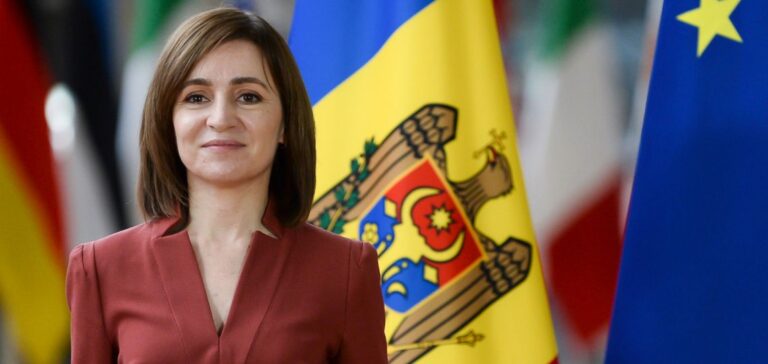In Chetrosu, south of the Moldovan capital Chisinau, an unusual silence reigns in a large hangar.
Normally, building materials are manufactured here, but the war in neighboring Ukraine has caused an economic earthquake.
“Normally, all the machines on the production line are running and it is extremely noisy,” says founder Ion Ignat.
Only two great titmice break the silence of the factory, perched on a beam of the temporarily abandoned premises.
Faced with soaring prices, the boss took the decision in early October to stop production for the first time since the creation of his company in 1992.
Rampant inflation, falling Russian gas supplies and tensions on the electricity market: this former Soviet republic of 2.6 million people, nestled between Romania and Ukraine, is in the midst of a serious energy crisis.
The President of the European Commission, Ursula von der Leyen, is expected in Moldova on Thursday to discuss increased aid to the country, which dreams of joining the EU.
One foot in the EU, one foot in Russia
“It’s a daily challenge to find energy,” its leader Maia Sandu stressed last week.
This vulnerability “generates political blackmail and interference in a democracy” torn between East and West, she deplored, castigating attempts at destabilization orchestrated by “the Russian secret services” and their relays on the spot and in exile.
A few days earlier, the United States had sanctioned Moldovan oligarchs “in order to counter Russia’s persistent influence campaigns”.
Moldova, which before the conflict was almost 100% dependent on gas delivered by the giant Gazprom, has been experiencing supply difficulties for several weeks. Now, only half of its needs are covered.
As for electricity, 30% of demand was previously provided by Ukraine, but Russian strikes on energy infrastructure forced Kiev to stop all exports to its Moldovan neighbor.
The remaining 70% is normally supplied by the Cuciurgan thermal power plant, located in the pro-Russian separatist region of Transdniestria. However, since November 1, the share has been significantly reduced to just over a quarter.
Streetlights turned off at night, elevators shut down, the government is tightening the screws. Since mid-October, Romania has also been supplying electricity at a capped price.
The situation cannot last, warns Ion Ignat. From February 24, the beginning of the Russian offensive, “we increased the pace because I knew that Russia was going to blackmail us,” he explains.
“Today I sell my surplus bricks, which allows me to keep my 50 employees without putting them on layoff,” he continues. But what will happen in a few months?
“We have one foot in the EU, and one foot in the Russian Federation, but if we have courage and dignity, we will have both feet in Europe and we can get rid of the influence of the last 30 years,” hopes the 60-year-old.
In the dark
In smaller companies, the climate is even more sombre. Between the vats of his craft brewery, the first in the country, Serguei Litra suffers from the soaring price of energy, which affects the price of his raw materials such as hops and glass. His electricity bill also tripled.
In consultation with his six employees, he is thinking about “increasing the rates, at the risk of reducing sales”. And to adapt to the new national restrictions, it produces outside peak hours.
The entrepreneur plans to invest in solar panels, in search of energy independence – “the only sustainable solution because nobody knows when the war will end”.
On the household side, the arrival of the winter chill will complicate matters, with bills already reaching “70% of some families’ income” according to President Maia Sandu.
Households are bracing for gas shortages, which typically double in demand between October and November, and possible power outages as Moldova is likely to step up its energy conservation measures.
In the Stefan Cel Mare park, in the heart of the capital, Liliana Damaschin, a 54-year-old pharmacist, enjoys the last light of the day under a tree.
Visiting his native country for a few days after six years in Italy, you can see the concern on his face. “I felt a deep sadness when I saw Chisinau plunged into darkness yesterday,” she says.





















